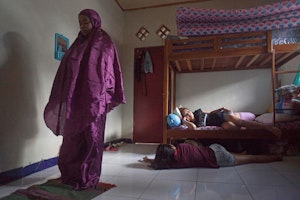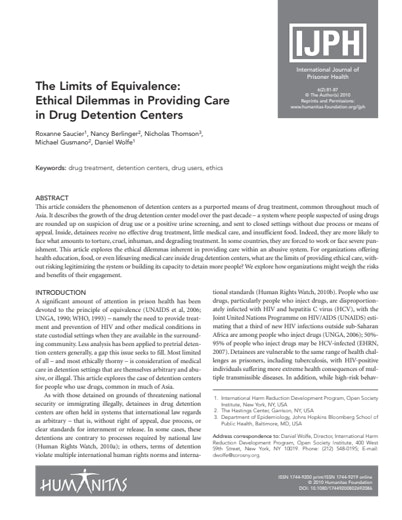This article considers the phenomenon of detention centers as a purported means of drug treatment, common throughout much of Asia. It describes the growth of the drug detention center model over the past decade—a system where people suspected of using drugs are rounded up on suspicion of drug use or a positive urine screening, and sent to closed settings without due process or means of appeal.
Inside, detainees receive no effective drug treatment, little medical care, and insufficient food. Indeed, they are more likely to face what amounts to torture, cruel, inhuman, and degrading treatment. In some countries, they are forced to work or face severe punishment.
This article explores the ethical dilemmas inherent in providing care within an abusive system. For organizations offering health education, food, or even lifesaving medical care inside drug detention centers, what are the limits of providing ethical care, without risking legitimizing the system or building its capacity to detain more people? We explore how organizations might weigh the risks and benefits of their engagement.
Read more
Voices
The World Must Learn from Hong Kong’s Example

While many policymakers work to control heroin dependence, Hong Kong stands out. A new report explains why—and offers lessons to public officials hoping to follow its example.
Voices
What’s Life Like for Women Who Use Drugs in Indonesia? It’s Time We Asked Them

Police violence, social stigma, and poor access to health care are a daily—and poorly understood—reality for many women who use drugs. A new report is finally letting them tell their story.
Voices
Indonesia Executes Several for Drug Crimes in an Ominous Sign of a Trend

From firing squads in Indonesia to vigilante killings in the Philippines, state-sanctioned violence against those in the drug trade is reaching new heights.
